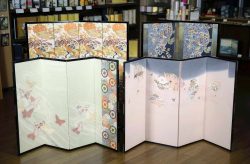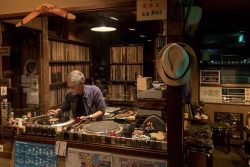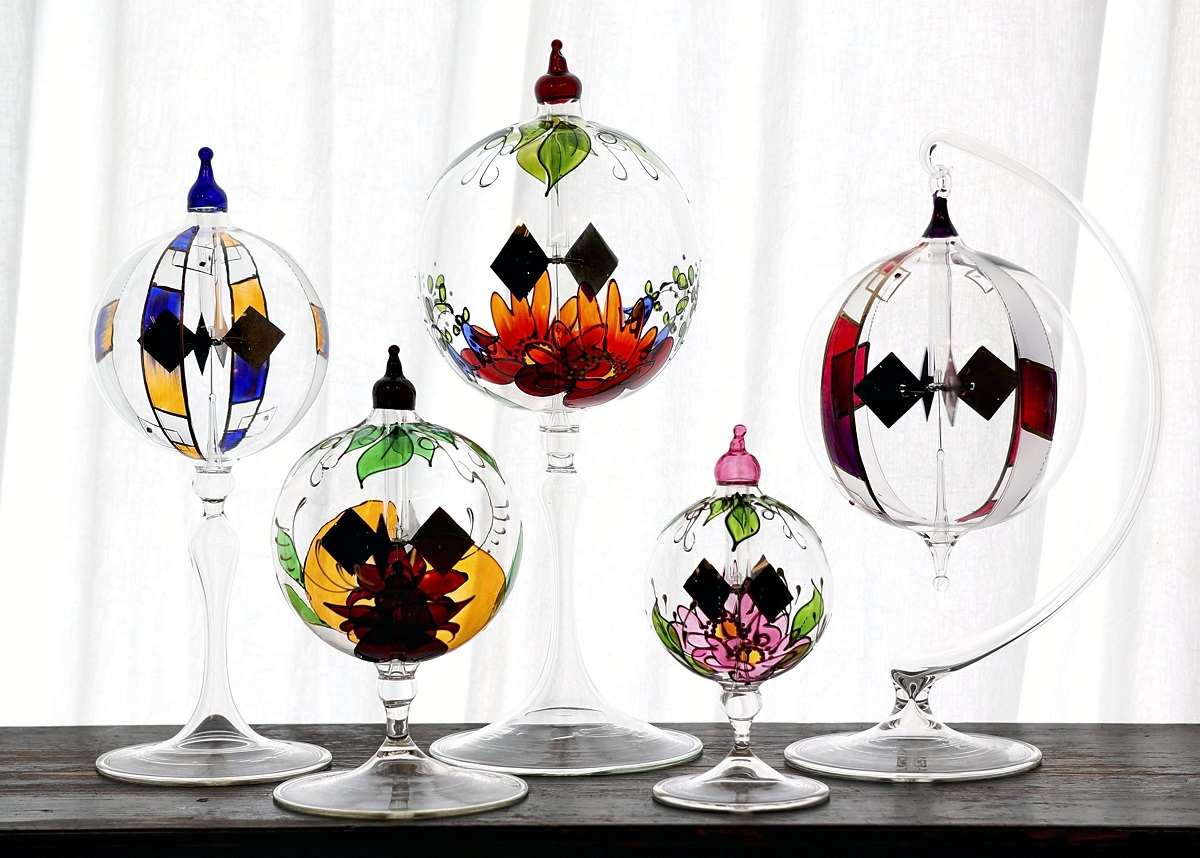
The German-made radiometers attract customers’ attention with their wonderful designs.
12:15 JST, October 11, 2024
Glass spheres with four small blades inside line Kanedaya Lichtmuhle, an antique store in Kisarazu, Chiba Prefecture. When exposed to light, the blades rotate noiselessly. These spheres are radiometers, an experimental tool developed in the 19th century to measure the energy of light. Their simple forms are now loved interior decoration items.
The blades in the center of the low-pressure glass sphere are black on one side and silver on the other. The black side absorbs more light and is warmer. It is believed that the temperature difference between the front and back sides affects the air inside, creating the force that makes the blades rotate. They are said to rotate well under sunlight or incandescent light, which contain infrared rays.
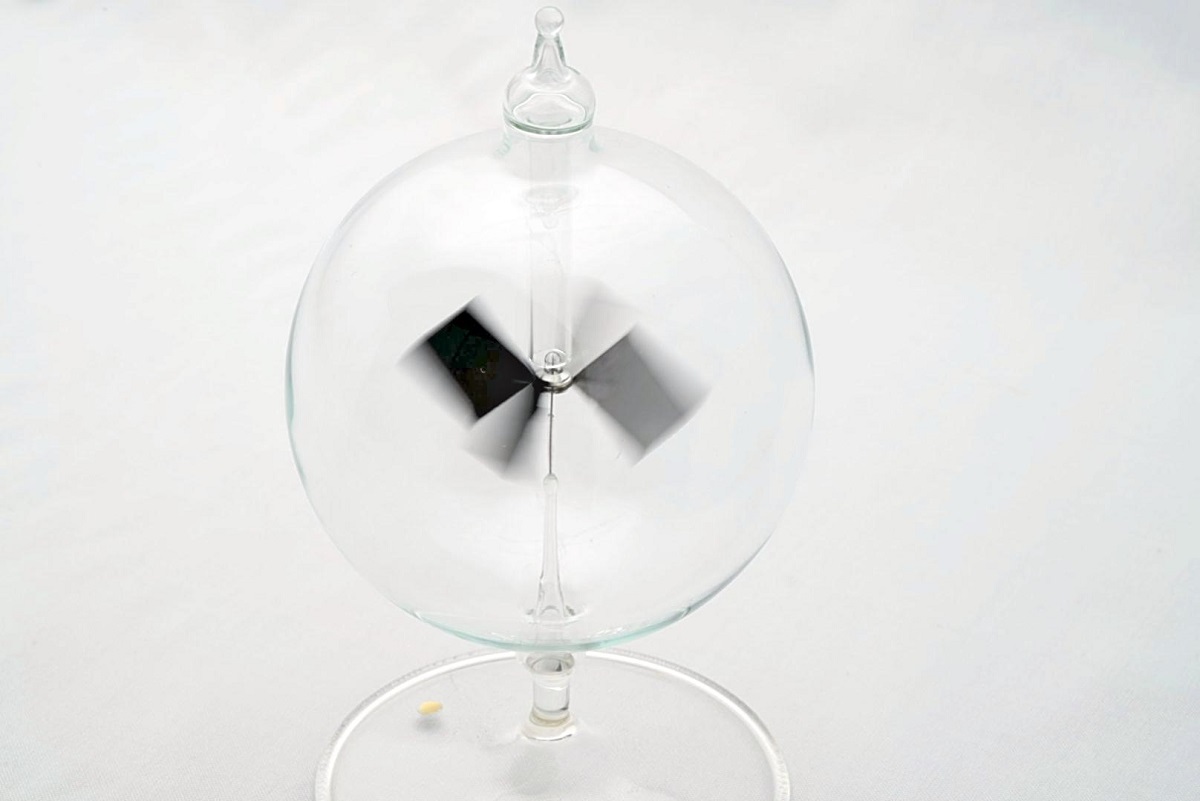
The blades of a radiometer rotate when exposed to light.
Hirotaka Hasegawa, 57, owner of Kanedaya Lichtmuhle, said, “I can feel the power of nature and it calms my mind when I look at it.” The store carries about 250 German-made radiometers, called “Lichtmuhle” in German.
The store mainly handles products made by Lichtenheldt-Glas, a company with an established reputation for craftsmanship. The store is brimming with a large variety of radiometers, such as stand-type or hanging-type designs.
The radiometers come in various shapes and sizes, including spheres and waterdrops. Some glass surfaces are decorated with plant shapes and other patterns, giving them a glamorous look. One with several glass balls in a row elegantly decorated the window where light was shining through.
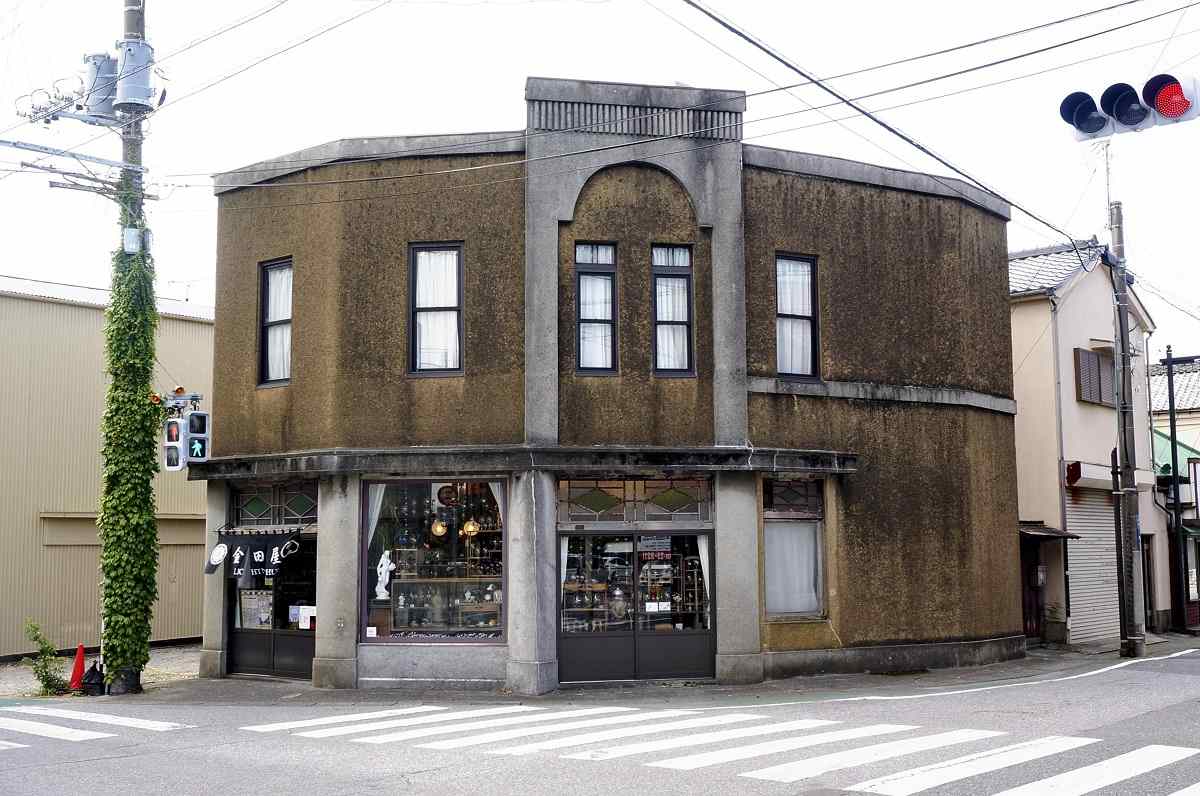
The exterior of Kanedaya Lichtmuhle
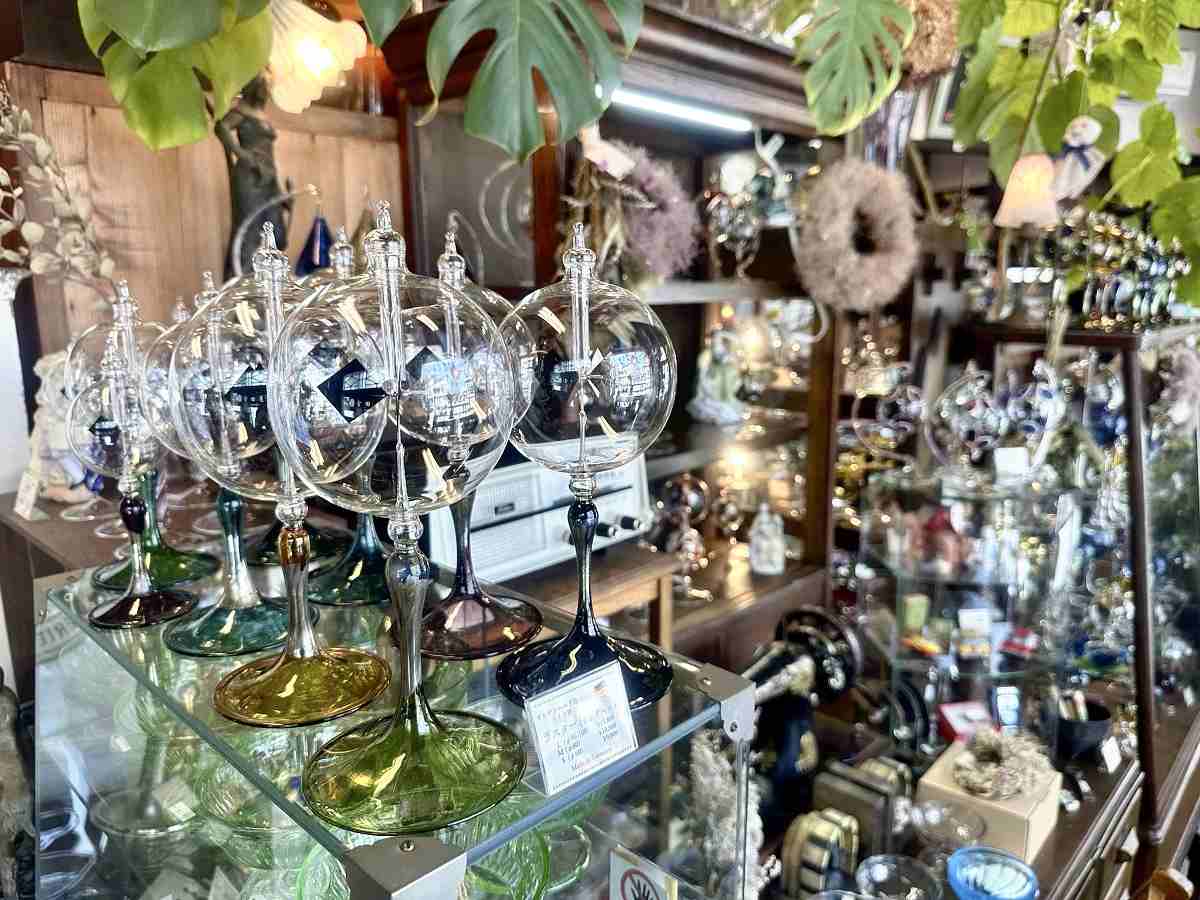
Many radiometers line the retro-looking antique store.
Hasegawa said that he checks all of the items for any issues when they arrive at the store and polishes the glass surfaces if necessary. The last few years have seen fewer radiometers, with a shortage of good quality mica and glass for the blades said to be the cause.
The radiometers are popular with both men and women and are great as gifts. “It is interesting that the speed of the blades’ rotation changes depending on the sunlight. I hope people will enjoy it as an interior decoration that changes,” Hasegawa said.
Signboard architecture
The store used to sell miscellaneous Western goods. It had been operated by a pharmacy that Hasegawa’s family had run since the Edo period (1603-1867). The building was rebuilt in 1932, during the early Showa period (1926-1989), as a “signboard building,” which has a flat, square facade like a signboard. The Western-style design and decorations create a retro atmosphere, with the lattice ceiling also being a distinctive feature of the building.
Due to aging, demolition had been considered, but Hasegawa renovated the building and it is still standing today. The store sells a variety of antique items, including stationery, and also offers clock repair services.
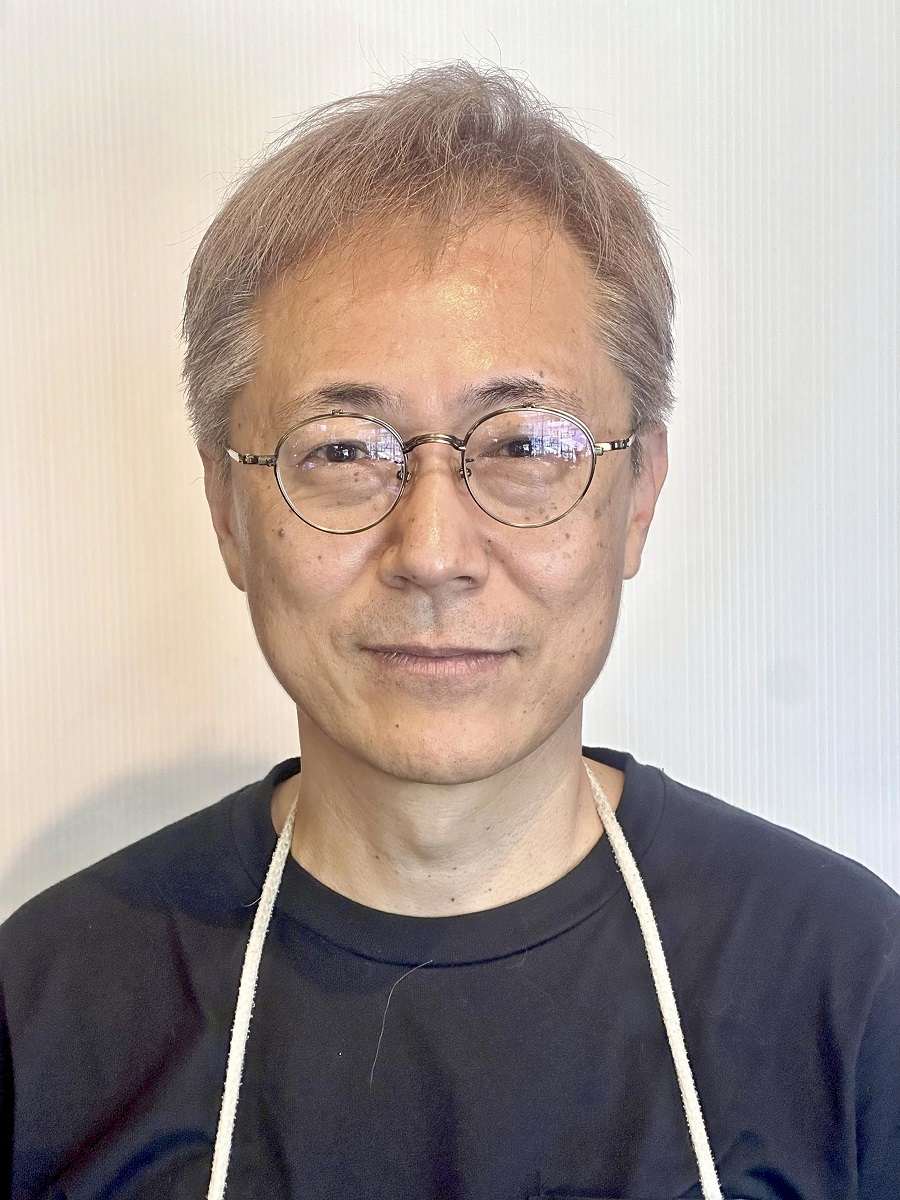
Hirotaka Hasegawa
Hirotaka Hasegawa
Born in Chiba Prefecture in 1967. After working as a company employee, he opened an antique store selling radiometers in Hachioji, Tokyo, in 2011. Then, he opened Kanedaya Lichtmuhle in Kisarazu, Chiba Prefecture, in 2015.
Top Articles in Culture
-
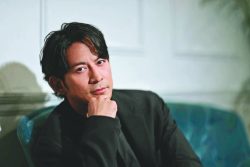
Junichi Okada Wears Three Hats in ‘Last Samurai Standing,’ Serving as Star, Producer, Action Choreographer in Thrilling Netflix Period Drama
-
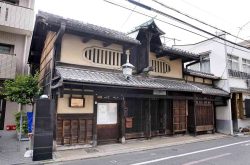
Lifestyle at Kyoto Traditional Machiya Townhouse to Be Showcased in Documentary
-

Maison&Objet Kicks off Near Paris with Japanese Lighting Designers’ Installations on Display, Creating Rich Environment
-

Prestigious Japanese Literature Prize Names Toriyama, Hatakeyama as Winners
-

‘Jujutsu Kaisen’ Voice Actor Junya Enoki Discusses Rapid Action Scenes in Season 3, Airing Now
JN ACCESS RANKING
-

Univ. in Japan, Tokyo-Based Startup to Develop Satellite for Disaster Prevention Measures, Bears
-

JAL, ANA Cancel Flights During 3-day Holiday Weekend due to Blizzard
-

China Confirmed to Be Operating Drilling Vessel Near Japan-China Median Line
-

China Eyes Rare Earth Foothold in Malaysia to Maintain Dominance, Counter Japan, U.S.
-

Japan Institute to Use Domestic Commercial Optical Lattice Clock to Set Japan Standard Time


